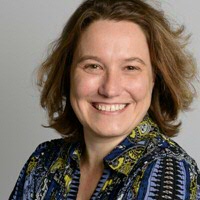Professor Katja Loos wins Research Award of the Alexander von Humboldt Foundation
Katja Loos, Professor in Polymer Science and Applied Chemistry at the University of Groningen, has been awarded the Friedrich Wilhelm Bessel Research Award of the Alexander von Humboldt Foundation, Germany. This prestigious Research Award is awarded to scientists and scholars from abroad, internationally renowned in their field, who completed their doctorates less than 18 years ago and who in future are expected to continue producing cutting-edge achievements which will have a seminal influence on their discipline beyond their immediate field of work.
The Friedrich Wilhelm Bessel Research Award is presented to Prof.dr. Katja Loos because of her impressive research portfolio in the field of sustainability. She pioneered the field of enzymatic polymerizations, especially the bio catalytic synthesis of polysaccharides and polyamides and introduced complete green polymerization routes via the use of sustainable monomers. In this area she has been and is far and away the dominant figure in terms of developing new concepts and reporting the most creative and practically important applications.

Award winners are honoured for their outstanding research record and invited to conduct a research project of their own choice in Germany in close collaboration with fellow experts at a research institution in Germany. Prof.dr. Katja Loos will cooperate with the University of Hamburg that just recently signed a Memorandum of Understanding with the University of Groningen.
About the Humboldt Foundation
The Alexander von Humboldt Foundation promotes academic cooperation between excellent scientists and scholars from abroad and from Germany, and is primarily funded by the German Federal Government. The Humboldt Foundation’s alumni network currently comprises more than 29,000 scientists and scholars from all disciplines in over 140 countries. The Humboldt Foundation grants about 20 Friedrich Wilhelm Bessel Research Awards annually in all scientific fields.
More news
-
17 February 2026
The long search for new physics
-
10 February 2026
Why only a small number of planets are suitable for life
